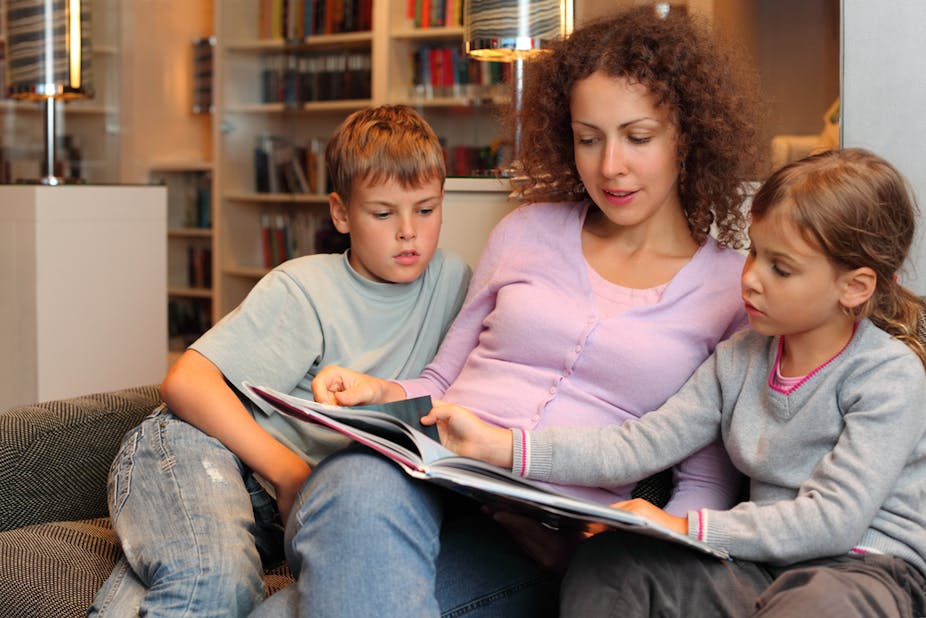Two initiatives aimed at getting children to learn and read more have just launched with a flourish. The $15m Global Learning Xprize pits teams of innovators across the world in a competition aiming to find a technological solution to teach children literacy and numeracy, without the need of a human teacher.
Meanwhile, the Read On Get On campaign in the UK is encouraging all adults to read to their children, even for as little as ten minutes per day. It is backed by a coalition of UK charities, teachers, publishers, and several celebrities, including JK Rowling and Geri Haliwell.
Both initiatives were launched in response to some alarming education statistics. Xprize cites a UNESCO report which estimates that the world will need 1.6m more teachers by 2015. Read on Get on draws on a Save the Children report predicting that 1.5m British children might reach the age of 11 unable to “read well” by 2025, and that this could cost the UK £32 billion in growth.
What, how and who reads
If we aim to eradicate illiteracy, we really need to think big and act boldly. Yet there is a bit of a Catch 22 here. To do this well, we need to be clearer about what we mean by the slogan Just Read and the “magic formula” of reading just ten minutes per day, espoused by the Read On Get On campaign.
What, who and how we read in those ten minutes are just as important as why. Does reading a print book count as much as reading an e-book or are we in a tired dichotomy of encouraging engagement with printed books at the expense of on-screen reading? Whether we mean reading fiction or non-fiction is also important – fiction seems to be prioritised in the Save the Children report. And are we trying to get children to read for pleasure or read for learning or both?
Not just a solution from the West
Similarly, it is not clear what is meant by the ultimate goal of the Xprize, that the winning technological solution is supposed to most effectively support autonomous learning. It’s important that the outcomes are not assessed solely using Western standards. They should also reflect the skills essential to thrive in a particular local environment.
Xprize does specify that the cultural and political importance of local languages will be emphasised and that the shortlisted software will be field-tested only in countries with a national policy of promoting English fluency.
But the issue of how appropriate large-scale technology-driven initiatives are in different cultures and economies is a complex one. With Xprize, it’s also important to think carefully about merging the knowledge infrastructure of the West with the physical infrastructure of the developing world.
While in the Western world mobile technology is typically implemented with the aim of enriching classroom instruction and assisting teachers, in the developing world technological initiatives are often about replacing teachers and teacher-proofing – or taking decisions away from teachers. The same technology is therefore serving two very different imperatives – and this requires a mind shift for those software designers who grew up with a different educational paradigm.
Reading and learning in 21st century
For both campaigns, it is crucial to think about whether they will change how well and often children read rather than just the delivery mechanisms for reading. So that the two campaigns become truly game-changing national and international campaigns, we need an openness and willingness to rethink habits and routines. More time is needed to understanding what reading and learning in the 21st century is and could be about.
This is why it’s important that both campaigns maintain a community approach supporting cross-generational dialogues.
The children’s author Michael Rosen has suggested that parents should be encouraged to come and sit on the floor with their children at story time. Other children’s authors, for example Michael Morpurgo, are promoting reading for pleasure by adding their short stories to the Saturday edition of The Sun newspaper. Read On Get On did well by employing a general strategy to engage a wide number of people: it has already managed to galvanise politicians, business leaders and other big players who might be able to provide the necessary resources to tackle the issue of eradicating illiteracy in the UK.
Also, behind the Xprize there is a clear sense of community collaboration as the organisers encourage teams to work together on the best possible technical solution and engage in an open-source development process.
We need to keep such a community approach to ensure that reading becomes a shared concern and decisions about future educational technologies are driven by communities rather than by selected technology companies. In this respect, both campaigns give us a lot of hope.

